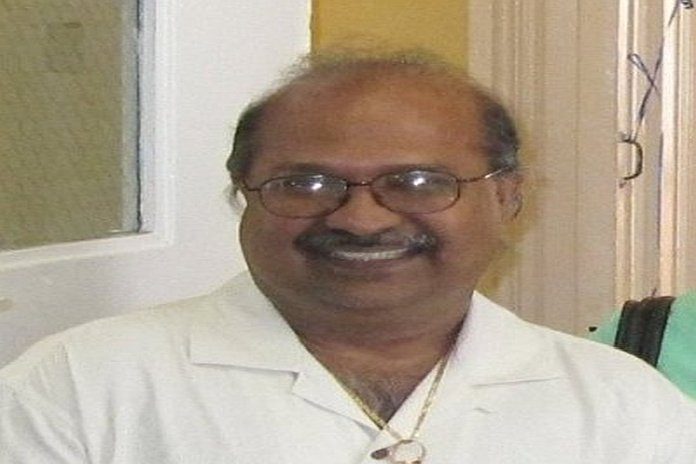By Annan Boodram – The Caribbean Voice
The majority of coronavirus patients were infected by someone who wasn’t showing any symptoms of the deadly virus (asymptomatic persons) a new study of cases in China found. Researchers from the Shanghai Jiao Tong University School of Medicine estimated how long it was taking for someone to become infected with COVID-19. Using mathematical modelling, the team found that 79.7 percent of people with the deadly virus caught it from someone not showing any symptoms.
According to the UK’ Daily Mail, the findings of the Chinese study mirror already available data on viral shedding studies in close contact areas – particularly from confirmed cases.
These findings seem to contradict PAHO’s position as published in the Guyana media, which quoted PAHO/WHO country representative, Dr William Adu-Krow as saying that the “risk of contracting the novel coronavirus disease (COVID-19) from an asymptomatic host is relatively low”.
Another point to note is that stats from New York State, released on April 7, 2020, revealed that the majority of coronavirus deaths (61percent) were among men, 63 percent of the deaths were among those age 70 and older, and 86 percent of all deaths were among people who had underlying illnesses, such as hypertension and diabetes, new state data shows.
Findings included:
- The leading underlying illness was hypertension, which showed up in 55 percent of the deaths.
- Next was diabetes, which was diagnosed in about 37 percent of the cases.
- Other top illnesses found in those who died from coronavirus were hyperlipidemia; coronary artery disease; renal disease and dementia.
It is also to be noted that early treatment does lead to greater chances of recovery. Thus as soon as someone suspects that he/she is having symptoms quarantine (in a separate, well ventilated, room, if possible), should go into effect, sanitizing should be the order of the day, focus should be on foods and beverages that help boost immunity especially ones containing vitamins C and D such as citrus fruits, garlic, papaw, crabs, gooseberry, watermelon, sweet potato, eddo, carrot, broccoli and ginger.
In fact every one should be using foods to boost the immune system at this time and everyone should wear masks and gloves once outside the home. No one is immune to this disease no matter how young, strong and/or health you are.
As well foods, beverages and herbs that contain anti-viral properties should be used – aloevera, sage, basil, garlic, peppermint, oregano, ginseng, rosemary, bell/table peppers, pomegrante, coconut, green tea, cabbage, onions, tomatoes, walnuts and lemon balm.
Other steps including
- Wearing a mask all the time, essential for the protection of others in the home as well. Including pets;
- Using only Tylenol or acetaminophen; while there is no evidence to show that ibuprofin or aspirin can create problems there is not enough evidence to show that they are absolutely safe either;
- Sponge baths with slightly warm water instead of shower and change of clothing at least once a day
- Stay hydrated with warm liquids (ginger or green/black tea for example) or citrus fruit juices – lemon, orange/lime/tangerine
- Lozenges, cough drops, halls, ginger tea, mint tea for the cough as well as a cough suppressant such as Ferrol Compound
- If the body pain is continual a vigorous body rub down, maybe once a day will helps
- Chills is also a symptom associated with COVID 19 so make sure you are able to keep warm if that becomes necessary;
- Eating regular meals. You may not have an appetite and you may find that your taste buds are not operating so it is recommended that you eat small portions often – chicken soup is highly recommended;
- Adequate rest, especially since the symptoms can interfere with a patient’s rest
- Is symptoms worsen please see your doctor or go to a hospital to get tested firstly and then be advised accordingly;
The WHO also recommends that:
- Bathrooms and kitchens should be well ventilated;
- One member of the household, who is in good health with no underlying chronic medical conditions, should take on the role of caregiver – no one else should visit the patient until they are symptom-free ( both patient and caregiver must wear masks);
- Caregivers should wash their hands after every contact with the patient, as well as before and after preparing food, before eating, after using the toilet, and whenever hands look dirty;
- After washing hands with soap and water it is preferable to use disposable paper towels to dry them. If these are not available, use clean cloth towels and replace them frequently;
- The sick person should use separate cups, dishes, utensils, towels and bed linen to the rest of the household. And all these items should be washed separately using soap and water;
- Any surfaces and objects that have been touched by the sick person should be cleaned and disinfected at least daily.
Finally the fact that at least two COVID-19 deaths could have been avoided in Guyana, had the hotline responded in a timely manner leaves much to be desired. A hotline must be manned 24/7 and a rapid response team be in place in the event that patients are struggling, especially with breathing.
Remember safety, protection and knowing that help is immediately available, if needed, contribute to easing stress, anxiety, panic and tensions, factors that will certainly compound the condition of anyone suffering from COVID-19.





